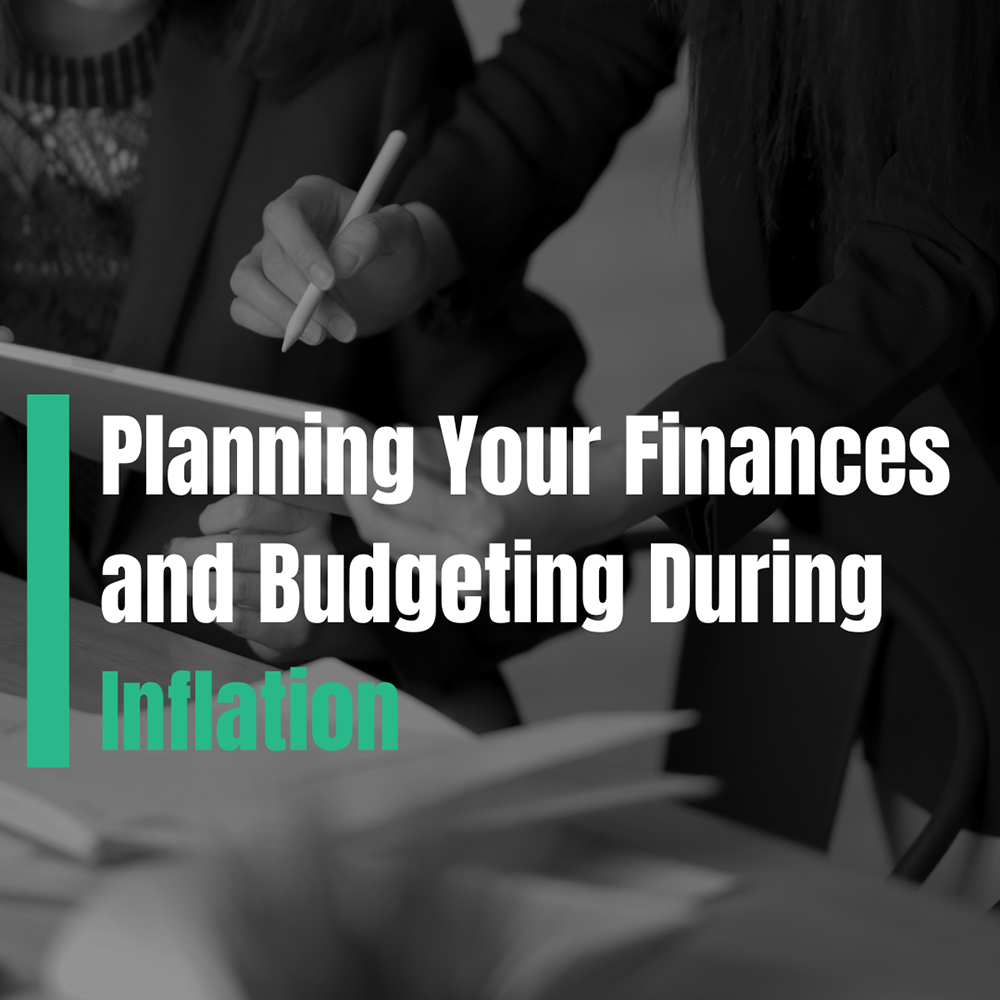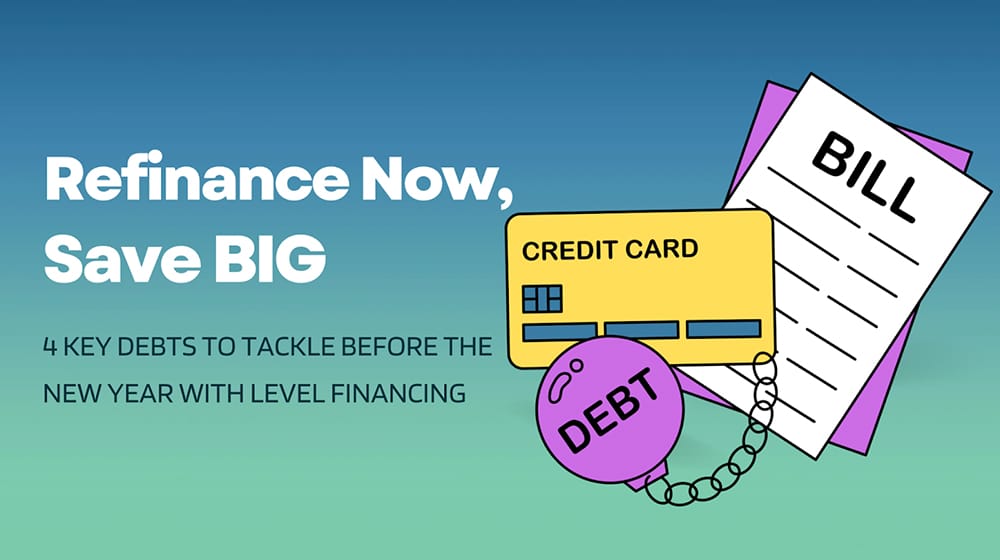The term inflation in economics refers to a generalized increase in the costs of commodities and services over a certain period of time.
Rising costs lead to a decline in the value of money, a decrease in people’s buying and purchasing power and a lower motivation to invest.
The major implication for your personal finances is that you will need more money to purchase the same quantity of basic goods and services you were buying before.
Basic necessities such as food, clothing and fuel will cost more, while wages may remain static or even decline. This can adversely affect one’s financial stability.
In order to counter this phenomenon and remain financially stable, it is crucial to adjust your budget accordingly.
Through budgeting during inflation, individuals can get a better overview of their earnings and expenses, establish the right spending strategy, prevent debt increases and ensure that their future is financially secure.
Assessing Your Current Financial Situation
The first step is to get a clear picture of your earnings, expenditures, savings, and assets.
Doing so will allow you to understand how your finances are distributed, how much of your income is going toward basic expenditures, how much is spent on discretionary purchases and what is a feasible target for your monthly savings.
Start by listing all your income sources. Include both primary (e.g. your main salary) and secondary ones (e.g. a side hustle) .
Then, divide expenses into needs and wants. The former refer to essential costs, such as rent or groceries, while the latter refer to non-essential costs, such as a gym subscription or cinema ticket. You should also divide expenses into fixed costs (regular bills) and variable costs (those for which the amount tends to change each month).
Key Takeaway: It’s important to evaluate your present finances when dealing with inflation by getting a clear picture of your income sources as well as your current spending on essentials and non-essential items. This knowledge will assist you in setting realistic budget and savings goals.

Creating a flexible monthly budget for inflationary times
Budgeting involves determining in advance which share of your income you plan to spend on different types of expenses, as well as how much you are going to save each month.
In order to take inflation into account, it’s important to create a budget that is flexible enough.
A flexible budget can readily adapts to changes in income, expenses, and financial goals. It allows you to adjust your spending habits and financial plans as needed. Here are some tips to create a flexible budget that takes inflation into account..
Set realistic financial goals – Create distinct and attainable financial objectives for the short and long term, such as building an emergency funds, settling debts, or building up savings for future investments. These objectives will steer your budgeting resolutions and aid in determining which expenses are the most important.
Track your income and expenses regularly – Regularly tracking your income and expenses is crucial to understand your cash flow and pinpoint areas where you can reduce non-essential spending. Doing so enables you to allot more funds towards your financial objectives and adapt to inflation-driven price hikes.
Adjust your spending habits – In order to manage the impact of inflation, it is important to be flexible with your spending. This could mean reducing non-essential expenses like eating out or going to shows in period of high inflation and increasing them again in periods of low inflation.
Review and update your budget periodically – The variability of inflation rates requires you to frequently reassess your budget and make modifications when needed. This approach allows you to remain effective in the pursuit of financial objectives despite the presence of economic fluctuations.
Key Takeaway: When dealing with inflation and budgeting, you must create a monthly budget that is adaptable to general price fluctuations. This requires setting realistic financial objectives, regularly monitoring your earnings and expenditures, modifying your spending patterns to accommodate surging prices, and revising your budget at intervals.

How to Save Money and Build an Emergency Fund
A reserve fund is crucial in times of economic instability, like periods of high inflation. Setting enough money aside will allow you to absorb spikes in the inflation rate without have to cut your current spending considerably.
Your emergency fund should cover at least 3-6 months of expenses and must only be accessed in emergency situations, such as medical crises or loss of income.
Building an emergency fund starts with setting aside a percentage of each paycheck. This can be done by automating savings contributions, which helps to ensure that savings are consistent and that the money is set aside each month.
Creating a dedicated savings account can be a motivating factor in helping you stay on track and remain committed to your saving objectives.
Key Takeaway: Inflationary periods mandate the necessity of saving money and establishing an emergency reserve. The recommended reserve should be able to cover expenditures for a minimum of three to six months and must be reserved solely for urgent situations.
Read More: Saving Money for a Goal

Investing Wisely During Inflation
Various investments can be influenced by inflation. Consumer goods firms, for example, could experience an impact on their stocks if they belong to sensitive industries to inflation.
Inflation may also lead to increased interest rates, resulting in diminished bond prices, which could be worrisome for holders of debt.
Inflation could also impact real estate as it could increase rental and property costs as a consequence of inflation.
To protect your finances from inflation, it’s important to diversify your portfolio with assets that have a record of outperforming inflation. Such assets include gold, silver, and TIPS. It is important to also consider assets that produce a reliable revenue stream such as dividend-paying stocks and rental properties.
As investing during inflation can be precarious, it is recommended to seek assistance from a financial advisor before making any substantial investment choices. A financial advisor can evaluate your situation and provide guidance on the ideal investment approach to pursue your financial goals while hedging against inflation.
Key Takeaway: To safeguard your funds against rising prices, it is recommended to distribute your investments among various assets that have a history of surpassing inflation. Some examples are gold, silver, and TIPS. It’s always wise to consult a financial expert before committing to any significant investments.

Adjusting Your Lifestyle to Combat Inflation
To stick to your budget and savings goals during inflation, it may be necessary to adjust your lifestyle to economic fluctuations.
This involves engaging in activities such as purchasing goods from reduced-price grocery stores only, preparing your own meals at home, and utilizing public transportation. Taking the time to search for the same deal and most favorable offers can also aid in saving money on both regular and one-time expenses.
You should also consider. exploring additional income sources, such as freelance work or side hustles. This can help you boost your savings and cover unexpected expenses.
While it may feel like a challenge from time to time, it’s important to realize that even slight lifestyle alterations can help you make your finances more solid. For example, buying milk or bread at a discount store won’t affect your life considerably but it may help you offset the impact of high inflation on your financial situation.
Key Takeaway: To tackle inflation, you should be able to alter your lifestyle when needed and seek out alternative ways to earn money. This could mean shopping at discount supermarkets, cooking at home, using public transport, and finding the best deals. It’s also worth looking into freelance work or part-time jobs to increase savings and be able to handle unforeseen costs.
Read More: Proven Strategies for Earning Extra Money

Staying Informed and Proactive
Staying informed about present economic developments and information is essential when combating inflation.
Knowing what’s going on in the economy can lead to informed decisions on savings, budgeting, and investments, ultimately resulting in higher financial stability.
It’s particularly important to follow how inflation is affecting prices in your local area. Not every part of the country is affected equally when inflation hits.
Make a list of commodities and services that are of particular importance to you and look for reliable online sources to stay up-to-date with how their price oscillates over time in the area where your live.
Key Takeaway: It’s crucial to stay aware and take action about economic changes when tackling inflation. Create a record of significant goods and services in your community and monitor their costs over a period of time. By doing so, you can make better choices concerning savings, budgeting, and investments, ultimately leading to greater financial security.





